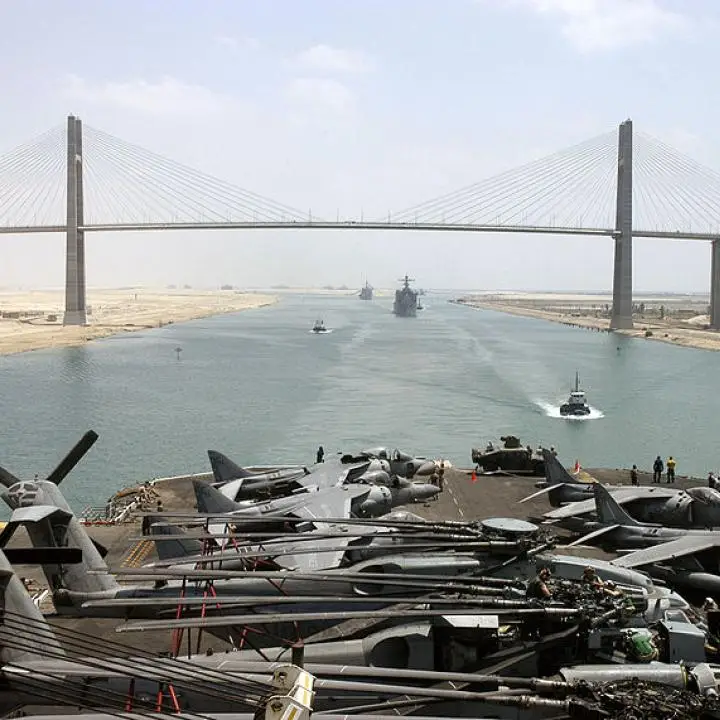Egypt faces a critical challenge in the Red Sea: safeguarding one of the world’s most vital maritime routes while avoiding any perception of siding with Israel in the ongoing Gaza conflict. Despite suffering direct economic losses from Houthi attacks on shipping, Cairo remains reluctant to join the U.S.-led naval coalition “Prosperity Guardian.”
Mohamed Farid and Mohamed Maher explain that this hesitation stems from complex political calculations. While Egypt possesses the strongest naval force among Red Sea nations and has historically played a leading role in regional maritime security, it fears that public participation in the coalition would undermine its diplomatic credibility as a mediator in Gaza and alienate public opinion at home and across the Arab world.
Key Points
- Strategic Importance of the Red Sea for Egypt
- Egypt has the longest Red Sea coastline (1,941 km) and relies heavily on the Suez Canal for foreign currency revenues.
- Houthi attacks have caused a 30% drop in Suez Canal traffic, worsening Egypt’s already fragile economy.
- Tourism in South Sinai has been hit by the Gaza war, compounded by debris from Houthi missiles falling in the area.
- Why Egypt is Staying Out of the Coalition
- Official participation in “Prosperity Guardian” could be viewed as indirect support for Israel amid the Gaza war.
- Cairo prioritizes ending hostilities in Gaza and pushing for a political settlement over opening a new front in Yemen.
- Egypt’s caution is informed by historical lessons, particularly the costly Yemen intervention of the 1960s.
- Diplomatic Calculations
- Egypt’s stance aligns with other major Arab Red Sea states—Saudi Arabia and the UAE—which have also avoided joining the coalition.
- Cairo is engaged in mediation efforts to secure hostage releases and increase humanitarian aid into Gaza.
- Officials argue that resolving the Gaza crisis would be more effective in reducing regional instability than expanding military operations.
- Risks of Escalation
- The Houthis link their attacks to the Gaza conflict, which risks prolonging Middle East instability.
- Heavy U.S. and British naval presence has so far failed to deter attacks.
- Egypt fears an expanded conflict could undermine regional security, empower extremist groups, and fuel anti-Western sentiment.
Core Values & Themes
- Neutral mediation over direct intervention.
- Protection of national security without sacrificing diplomatic credibility.
- Prioritizing political solutions to regional crises.
- Balancing economic stability with strategic restraint.

